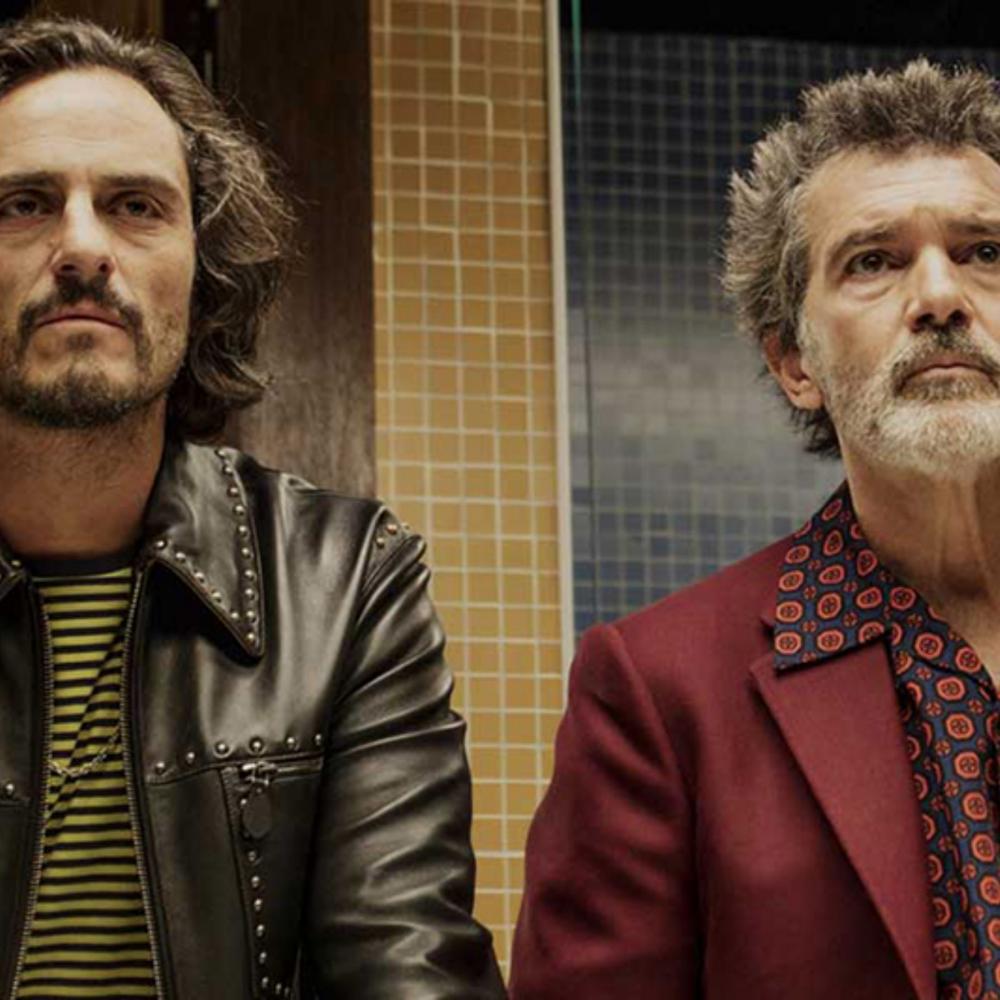Pedro Almodovar's films turn camp into art, or art into camp. Or even better, he isn't bothered all that much whether the candy-coloured hijinks, the sexual anything-goes, the carnal perfidy and maternal heartbreak in his movies are a form of art or a celebration of camp. And we, the audience, shouldn't either. Almodovar, the internationally best-known Spanish filmmaker, thrives on something much simpler, I think. Freedom.
That's much more valuable than anything -- either in Spain in the post-Franco period, when Almodovar started his filmmaking career, or in Thailand at present. It's a great opportunity that the Embassy of Spain in Bangkok has brought us the Spanish Film Festival 2021, which is in fact a mini-retrospective of Pedro Almodovar. Seven of the director's films are in the programme curated by the embassy and shown at the Alliance Francaise from now until Dec 9 , with repeated screenings later at the Thai Film Archive (see box).
As scholars have duly noted, Almodovar's films can be broadly (though not categorically) classified into the early and later periods. From 1980 to around 2000, he put out sexual comedies and high-style soap-opera romps that doubled as subversive statements to Spanish society at its critical, post-dictatorship juncture. Then from around 2000 and with All About My Mother, which won him an Oscar, Almodovar found a way to channel his love of old Hollywood melodramas into moving stories of matriarchal society, sexual awakening and the pain of old age, without losing his gift in celebrating the messy surprises of life.
The mini Almodovar retrospective in Bangkok gives us samples of both periods: What Have I Done To Deserve This? (1984), Women On The Verge Of A Nervous Breakdown (1988), High Heels (1991), The Flower Of My Secret (1995), All About My Mother (1999), Talk To Her (2002) and Pain And Glory (2019). Like many Thai film fans, I confess to having watched early Almodovar on bootlegged VHS tapes acquired through various dealings, savouring his madcap energy and tales of Madrid housewives mired in domestic nuisances and betrayals. Only in the mid-2000s did some of his films begin to show up in Bangkok cinemas (Bad Education, Volver, etc). This retrospective is much appreciated for bringing his early films to the big screen here for the first time.

Pain And Glory. Embassy of Spain
I mentioned freedom, while the great American critic Pauline Kael emphasised another quality of Almodovar's movies: pleasure. The early films in this programme give us plenty of that. Women On The Verge Of A Nervous Breakdown is a glorious tangle of emotional mayhem, in which the director's favourite co-conspirator Carmen Maura plays a spurned lover caught in a web of passion concerning her old lover, his son, the lover's object of desire, her friend's object of desire, her lawyer's object of desire, and so on and so forth, in a chaotic merry-go-round of lovelorn, loveless and unforgettable characters. In High Heels, Marisa Paredes plays a woman whose estranged daughter marries her ex-lover to spite her -- plus a murder subplot and some complications with an impersonator. Loquacious, witty bickers lift The Flower Of My Secret, another tale of melodramatic escapades involving a writer of trashy romance (Paredes again) whose own romantic misadventures are ruthlessly tormenting her.
The freedom to love, to jilt, to kill, to wallow, to run out of the room to find a new love, to wallow, even the freedom to choose sex and change one's identity -- Almodovar's films feel subversive even in their most theatrical sequences because they favour liberation and absurdity over taste, form, realism, plausibility, or any label of art-house mannerism a critic might slap on them. To risk a stereotype, his films should strike a chord with Thai viewers (or audiences anywhere near the equator) schooled in soap operas and melodramatic idiosyncrasies. What makes his films resonate and meaningful, however, is that while they revel in colourful implausibility, they are fired up by a genuine belief in the power of image, in love, in pain, and in the cinematic authenticity of these silly characters -- these silly, beautiful, passionate women and mothers.
Motherhood and its complications -- physical, emotional and psychosexual -- is of course a recurring trait in all his films and which has been widely discussed. None more so than in All About My Mother. Whereas in 1984s What Have I Done To Deserve This? has a frustrated, overworked mother selling her teenage son to a paedophilic dentist without batting an eyelid, and whereas the distraught mother in High Heels abandons her daughter as a child, Manuela (Cecilia Roth) in All About My Mother loses her son in an accident and sets out to rediscover the meaning of motherhood. Obviously inspired by the classic All About Eve, the film gives us one of cinema's most beloved portraits of a mother in all her devotion, confusion and hope. This is a modern masterpiece and Almodovar's most popular film among international audiences, as proven by its sensational win at the Oscars in 2000. If you have to watch only one film in this retrospective, it is this one.

Women On The Verge Of A Nervous Breakdown. Embassy of Spain
But how is that possible, because you also have to watch Talk To Her, a film of great tenderness about the possibility of life even as death is preordained. It's illuminating to think about Almodovar's rambunctious sex comedies of the 1990s in relation to Talk To Her, which contains one of the most indelible images of a man vanishing inside a woman's vagina -- not as a joke, not as a provocation, but as a moving ode to the all-encompassing power of femininity. In the film, a woman matador is gored by a bull and a ballerina lies in a coma, and two men dote on the wounded women while continuing to love them in their own ways. That vaginal epiphany -- and the whole film itself -- is like a sum of Almodovar's cinematic universe in which women are Jupiter (not Venus) with many moons -- sad, mad, melancholic -- orbiting them.
It's fitting, then, that the retrospective concludes with Pain And Glory from 2019 (the film was released in Thai theatres that year as well). Antonio Banderas, before he went big in Hollywood, worked with Almodovar in Spain in the 1980s. In Pain And Glory, the actor plays an ageing, gay film director Salvado Mallo whose career and health are in decline, and again, the film's lengthy flashback to Mallo's childhood spent in the countryside with his mother (Penelope Cruz, always great in Spanish-speaking films) gives the film its heart, a throbbing, sentimental heart that seems all the more intimate when we realise that Mallo is in a sense a stand-in for Almodovar himself.
There's always more, for Almodovar's film deal with many things else: the fluidity of sex, the mockery of intellectual life, the fascination and suspicion of religion, the love of a good woman and bad man. In the end, it's astonishing that Almodovar's films manage to be campy, absurd and larger-than-life while also serving as a chronicle of Spanish society -- not in its entirety, not in all accuracy, but at least in the dimension that concerns the capriciousness of human emotions. That's something that transcends Spanish borders and also the passage of time.


